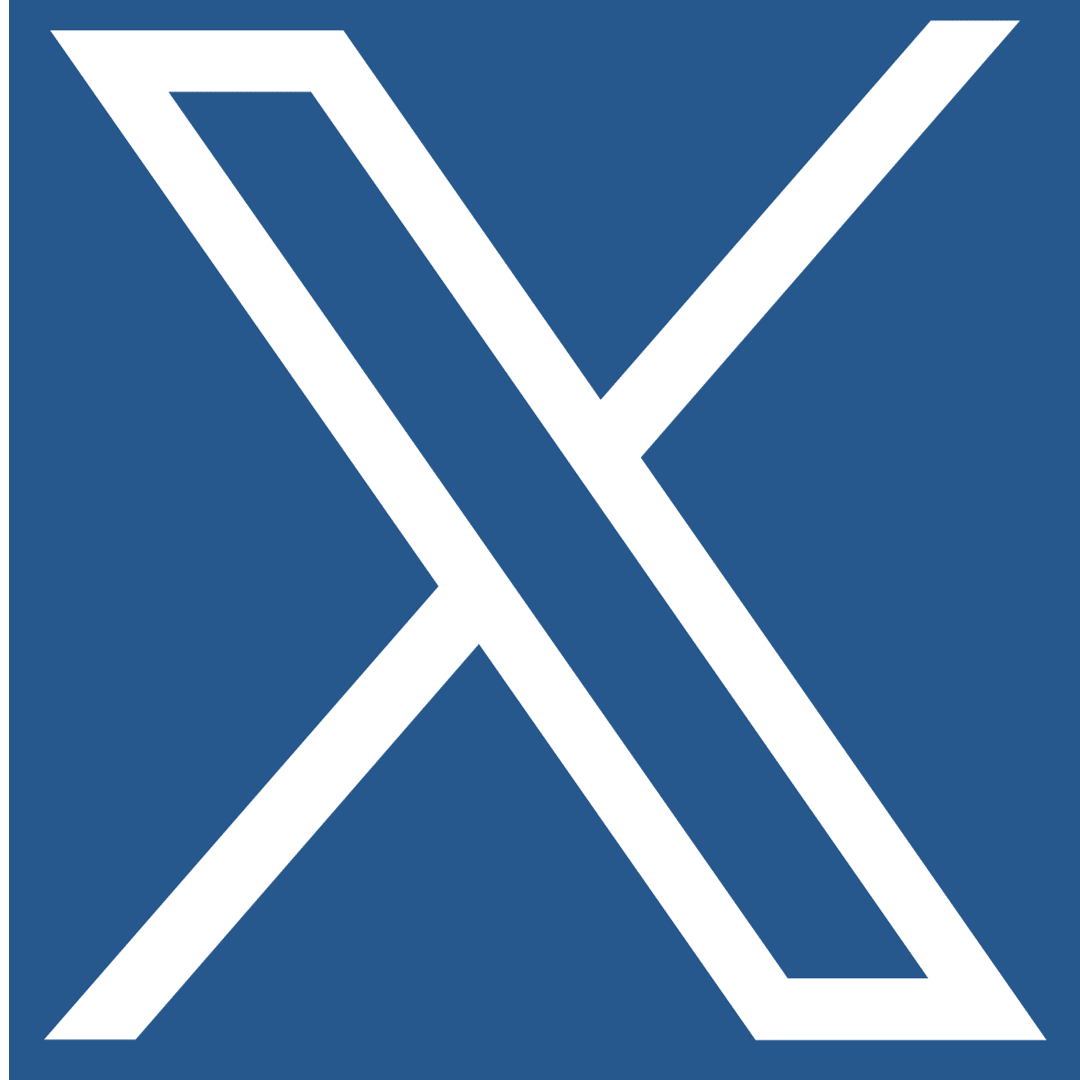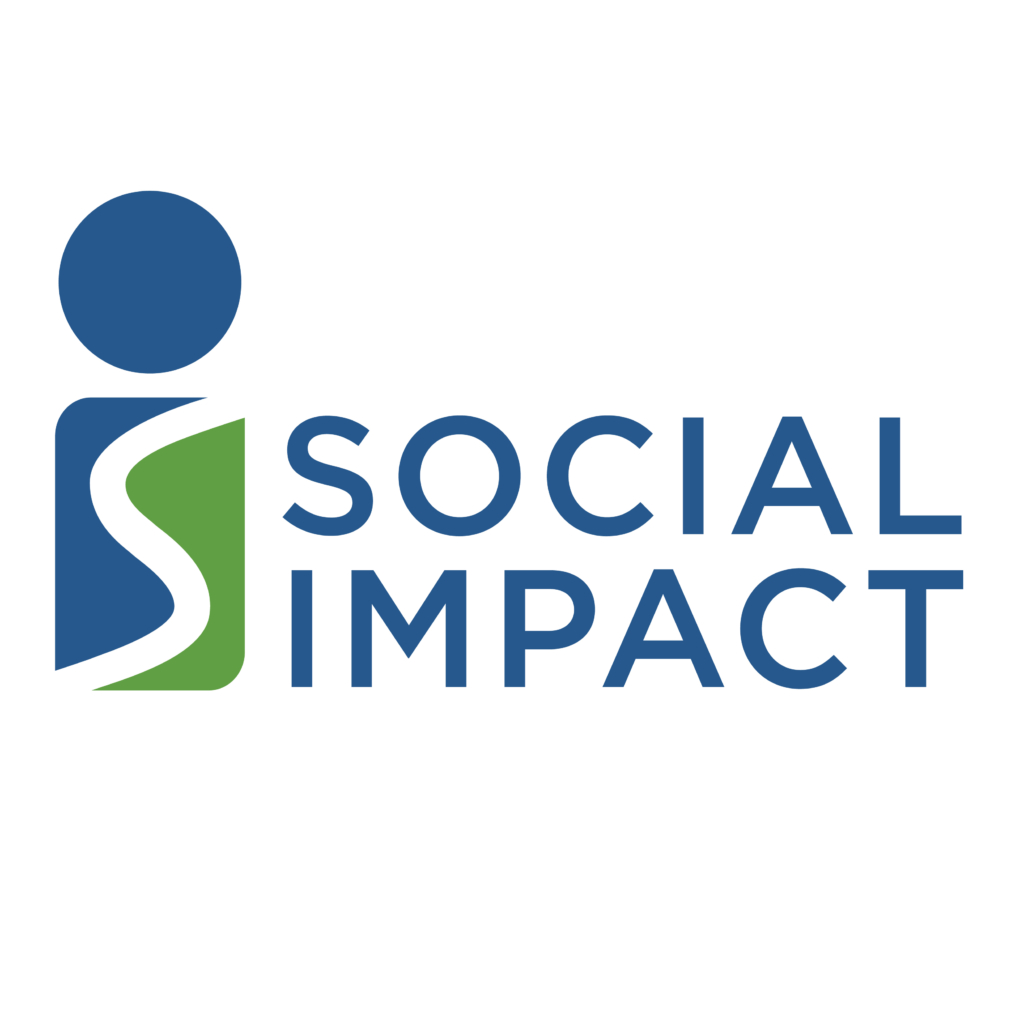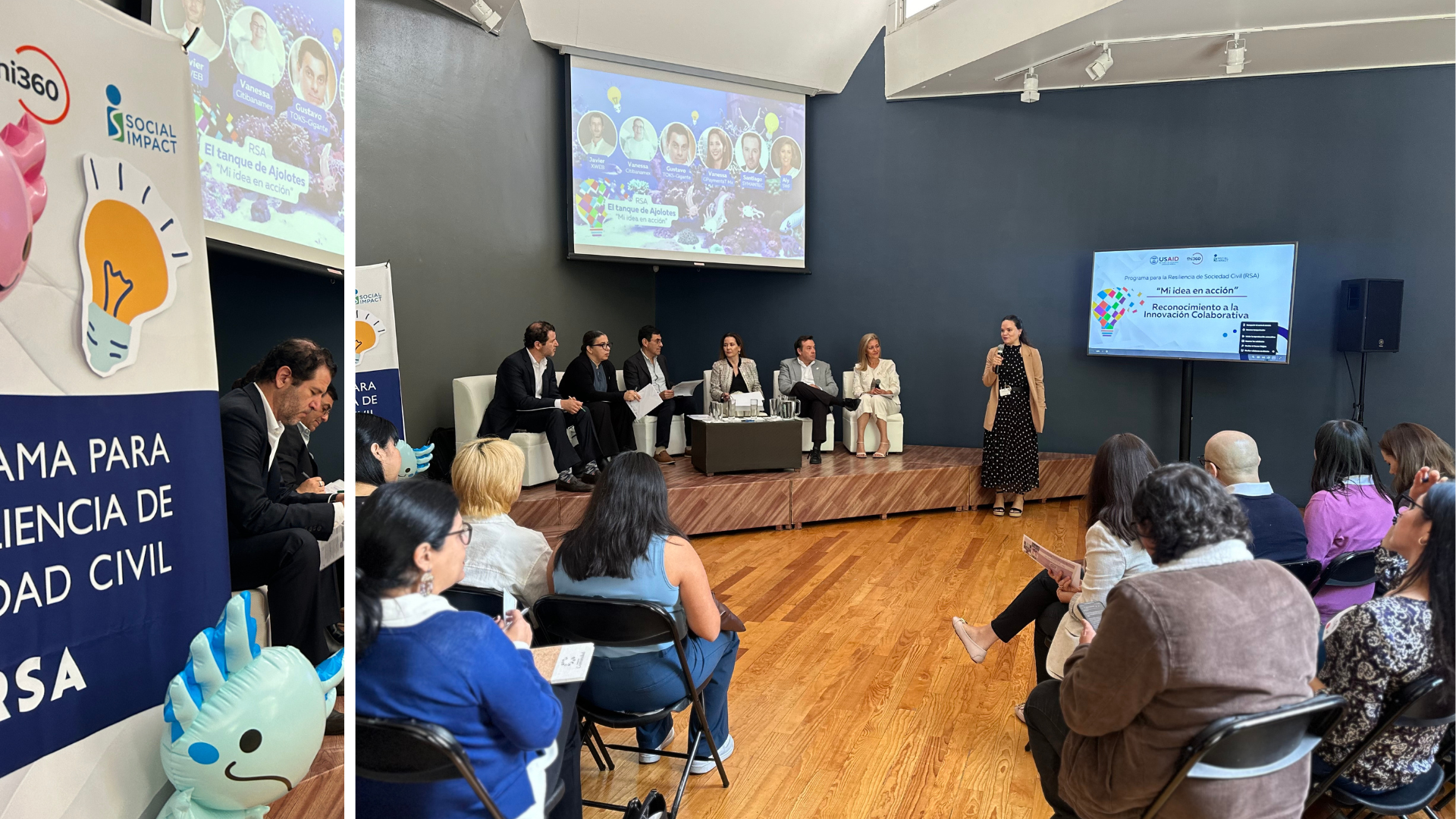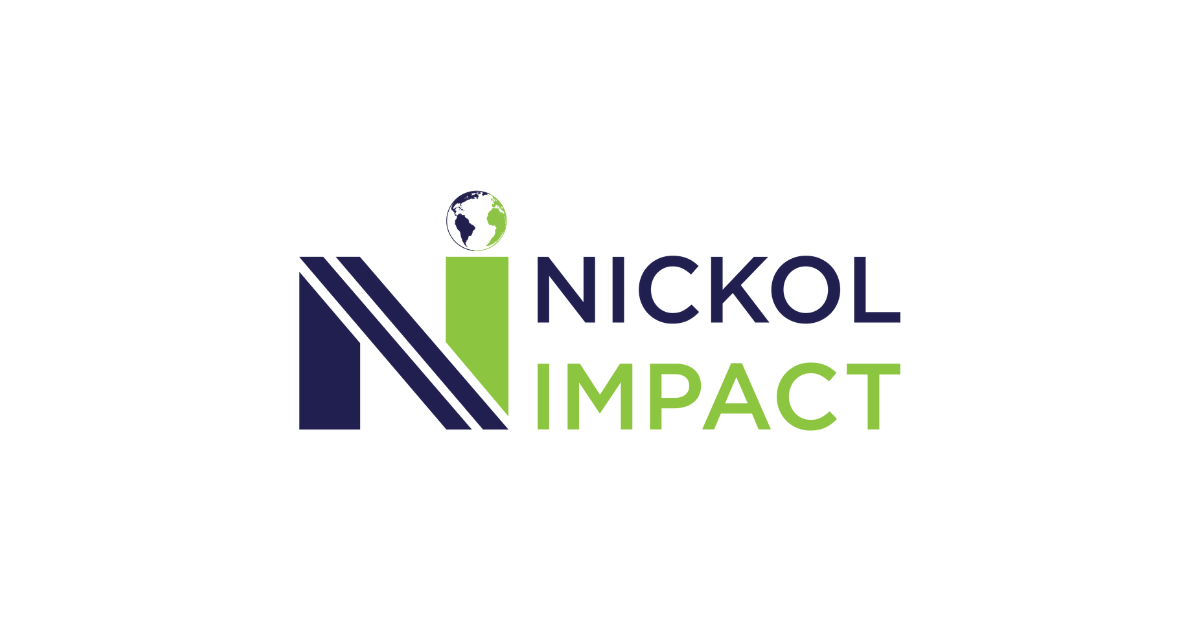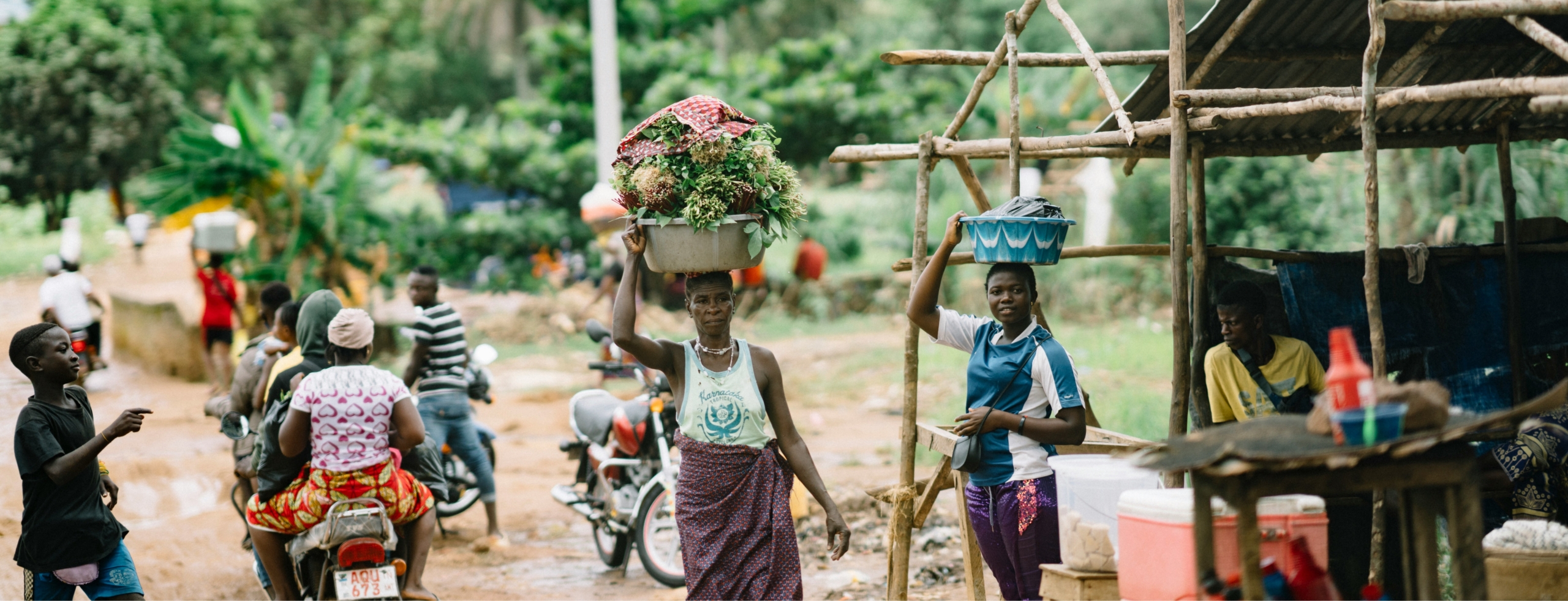Introduction
International development is currently faced with the challenge of ensuring better access to education and knowledge for people and organizations that can contribute to impactful results worldwide. Collaborating on current challenges and seeking sustained collaboration among peers who can share recommendations based on their experience is a way to tackle the problem. Knowledge sharing also creates practitioner’s networks that strengthen the Local System1, while further allowing the exchange of good practices and tools that enable people to learn through hands-on experience.
Mexico’s Resilient Civil Society Activity (RSA) is a United States Agency for International Development (USAID) funded initiative implemented in Mexico by FHI 360 in partnership with Social Impact (SI) and the International Center for Not-for-Profit Law (ICNL). RSA aims to strengthen the capacity of Mexican Civil Society Organizations (CSO) by implementing evidence-based solutions to critical topics such as human rights, justice, transparency, sustainable development, and violence prevention. RSA seeks to promote the resilience of CSOs in Mexico within a changing environment that presents increasing challenges.
What is “TELAR”2?
Within RSA, the SI team has developed a collective learning series called “TELAR” which is designed to promote and maintain collaboration among participating CSOs through networking activities. TELAR consists of virtual learning activities that are related to each other to obtain better insights and results. Webinars, collaborative workshops, and knowledge-sharing sessions complement each other to address topics not only from a theoretical and conceptual angle but also from a practical perspective with exercises and contributions from participating organizations. The diagram below and the subsequent text show the component parts of TELAR and explain how each element supports the initiative’s goals:

- Webinars: Invited experts share critical theoretical concepts, evidence, practical tools resources and practical actions to address the challenges faced by the sector.
- Collaborative workshops (related to webinar topics): These workshops are designed to promote collaboration between and among organizations and specialists. Invited subject matter experts and organizations share and apply practical tools through participatory events.
- Knowledge-sharing sessions: Participants share real situations and scenarios through a session led by expert organizations and facilitated by the RSA team. The purpose is to convene a space for dialogue to incentivize the involvement of participant CSOs to grow their networks.
TELAR promotes sustainable peer-to-peer formative dialogue. The series is built around a learning model for generating and consolidating alliances. It is based on the Collaboration, Learning, and Adapting (CLA) approach and the model of active teaching – “Learning by doing”. TELAR allows for an exchange of good practices, tools, and practical knowledge, and seeks to build from experimentation. It aims to be a sustainable space for open innovation among organizations where people learn through practice and shared experiences.
This initiative also responds to the emerging concerns and needs in the civil society sector, identified during the co-creation phase of RSA and the results and evidence obtained in co-creation spaces, from focus groups, learning communities, and dialogues promoted by RSA. TELAR has already been used in addressing issues in a variety of subject areas such as mental health and self-care in CSOs, adaptive planning and management, evaluation methodologies with a participatory approach, access to international financing, impact communication, collaborative leadership, and integration of the perspective of gender in organizations.
All TELAR activities are virtual, allowing a more significant number of organizations to access resources and knowledge for free. The activities are designed in collaboration with key experts who work with Social Impact pro-bono. Together we build content for the webinars and run workshops that follow a participatory and peer-to-peer learning methodology. TELAR’s collaborative approach allows the creation of specialized content for CSOs and also contributes to the sustainability of their results.
See the most valuable findings and results from two successful series – TELAR:
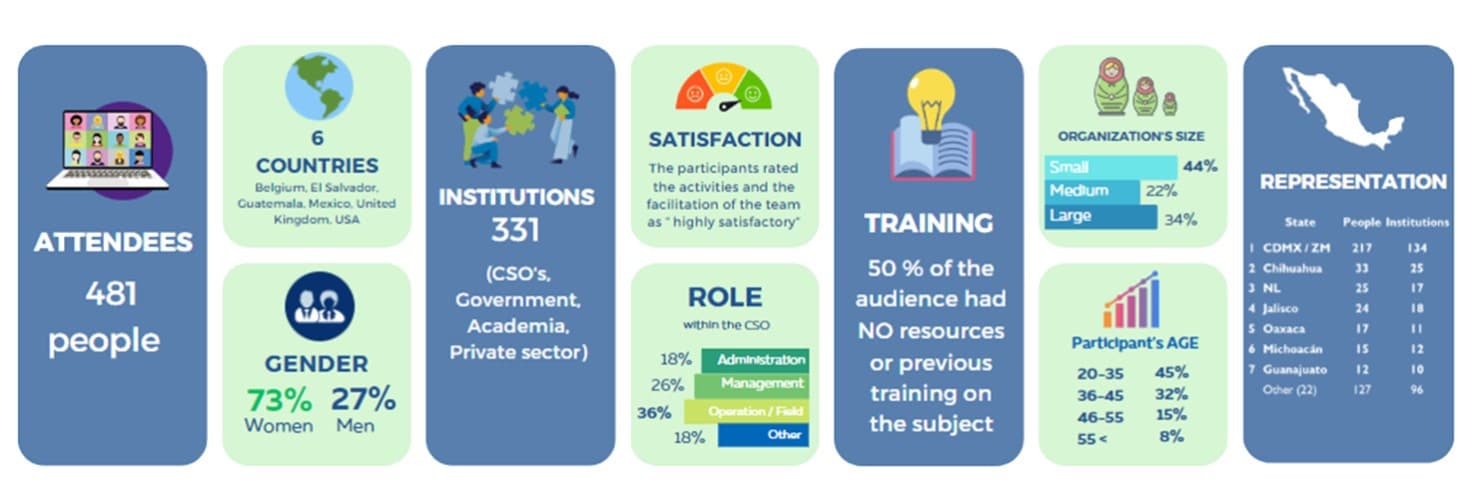
Throughout TELAR’s activities, RSA systematized received data and knowledge. The knowledge harvested through these activities provides evidence-based feedback to RSA with updated information that strengthens RSA’s capacity development offering and is also shared with USAID/Mexico.
Outcomes and Achievements
- Practical recommendations and resources from TELAR allowed many organizations to stay informed about issues that are critical for the sector but difficult to access.
- TELAR learning spaces helped CSOs from different parts of Mexico to develop organizational plans and strategies within their work teams based on experts’ knowledge and the experience of other organizations.
Lessons Learned
- Organizations pointed out that the spaces for learning and “experimentation” among peers have allowed them to have a more authentic and standardized understanding of the sector.
- Given the Mexican government’s decreased support and access to resources and training, organizations have recognized spaces for professionalization and accessible learning within their teams.
Systemic Impact
As RSA, we believe that TELAR has had a systemic impact on USAID’s vision since we have managed to offer resources and tools that serve various organizations and other sectors, such as government, academia, private industry, foundations, trusts, and the audience. The two TELAR series brought together a range of experts from different areas, from specialists in civil society, academia, and the private sector to leaders of other USAID-funded international cooperation programs. In the future, we are looking forward to designing a new series of activities and discussion topics that focus on improving narratives within, and among, CSOs in Mexico, effective communication of monitoring and evaluation results, and building alliances within the sector.
At SI, we are sure that initiatives such as TELAR increase the possibility of bringing a more significant number of CSOs closer. We will continue to seek more and more opportunities to increase access to knowledge and transfer resources and materials to CSOs. Our goal is to democratize learning and knowledge to benefit a more significant number of organizations in need of learning alternatives during challenging times.
1 The Local Systems approach (USAID) is based on the premise that the contribution of multiple interconnected actors is necessary to achieve strong development outcomes successfully. Local Systems: A Framework for Supporting Sustained Development, USAID, 2014. https://www.usaid.gov/policy/local-systems-framework
2 TELAR (translates from Spanish to English as “loom”). The name refers to the instrument used to weave crafts in Mexico and other South America’s cultures. The threads in different colors and textures are woven by an artisan, to achieve a large-scale work. TELAR activities symbolize this “great fabric” of organizations, people and topics that “weave” together to achieve a common goal.
_____
Author:
Marco Valencia is part of the Social Impact team in Mexico and works as a Multisector Specialist for the USAID/Mexico Resilient Civil Society Activity. He supports designing and implementing multisectoral strategies and methodologies for civil society organizations to promote strategic alliances with other important actors such as private sector, academia, and government. Throughout his professional career, Marco has been driving projects of social and strategic innovation, implementation of community development projects, organizational strengthening, and multisector collaboration.
